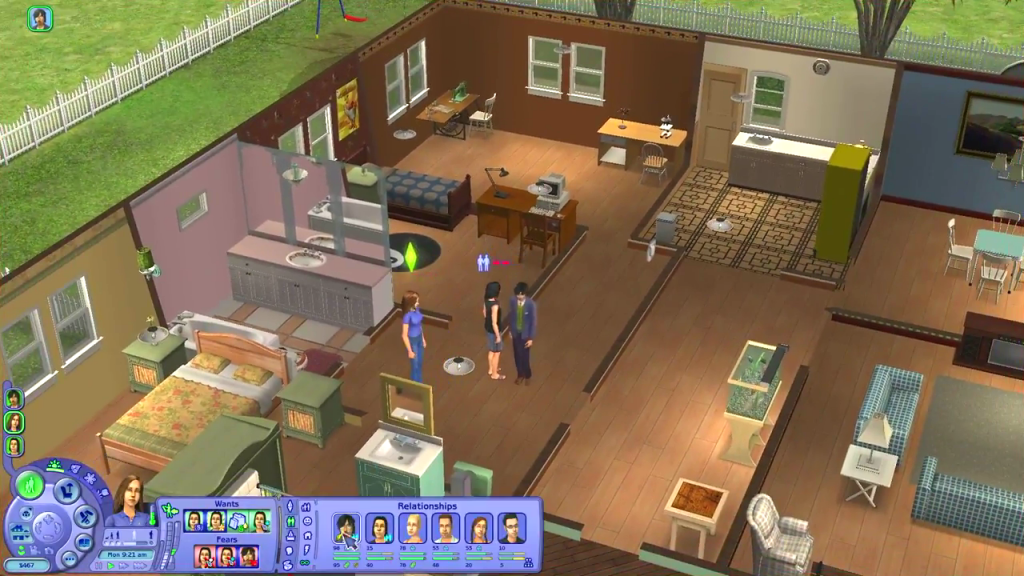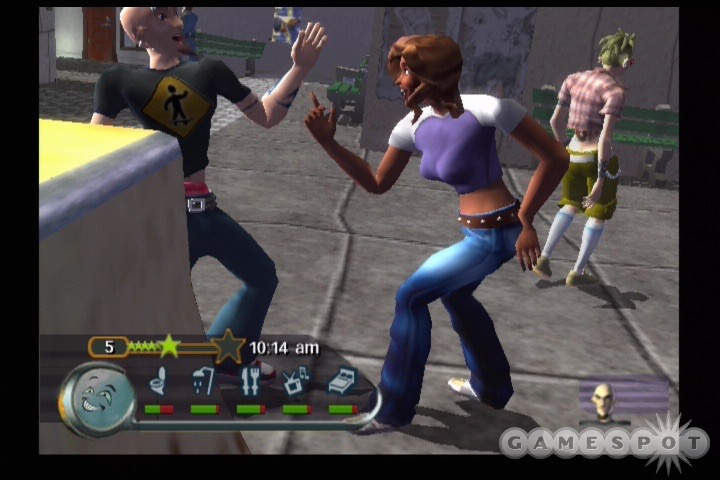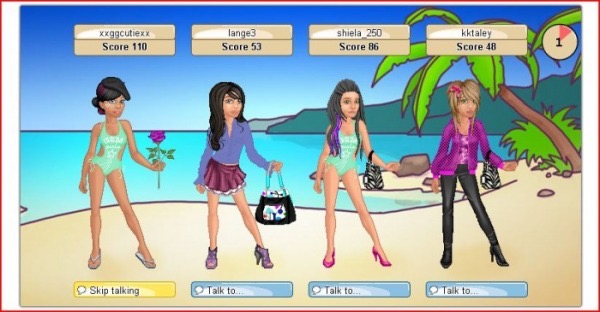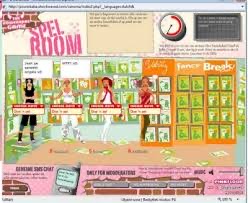Yes, I did it. I have created and uploaded a video in which I’m discussing four games that all revolve around communities and their social dynamics. The past semester I felt very anxious about doing this, however, after trying many (MANY!) times, I have finally succeeded. You can watch the video in the link below: https://youtu.be/csLvTeJqkm0
Especially during times like these, influenced by social distancing due to the Covid-19 pandemic, interactive, community orientated games seem to be more relevant than ever before. Throughout social media, I have seen many people rediscovering the Sims (run 4 already!) or play Animal Crossing on their Nintendo Switch devices (currently saving up for that).
The games I have discussed in my video are slightly ‘old school’ as I played them a lot in my teen years. To sum up, the games I have discussed in my video are the Sims (run 2), Urbz: Sims in the City, GoSupermodel and Powerbabe. For each of the four games I have inserted an image below in order to provide visual understanding of the appearance of each game (in the version I have discussed, as for instance the Urbz could be played on a Nintendo device as well).

The Sims 2 (2004). In the video I described the little monitor being in the top corner, however, as you can see it is placed in the bottom of the screen. The image shows multiple Sims. The character with the green sign represents the player. The five images in the bottom of the screen are the player’s Sims they need to take care of, and the player can switch from one Sim to another. As you can see the figure with the image above her head with the red crosses is in need of using the toilet.

The Urbz: Sims in the City (2004). The image shows two Sims (from the skater community) interact. Similar to the Sims , this game also has a bottom corner monitor that shows the player’s mood and needs.

GoSupermodel (2006-2016). The image shows the interactive ‘model game’ that could be played on the platform. The online platform was created in 2006 and closed, after ten years, in 2016. I forgot to mention this in my video, but one of the reasons that the social dynamics were so friendly, is due to the fact that there would always be moderators in the game. The moderators were players of the game as well, however their task was to keep the social environment friendly and positive. They could also block accounts that did not follow the rules.

PowerBabe (2004-2006). The image shows the game when it’s played. Players can interact with one another as they plot their next move. The characters are lined up, similar to GoSupermodel.
As you have seen, all the games look slightly different from another. However, they all have one visual aspect in common: the player decides how they dress up their character. The Sims and the Urbz have options to include male characters as well as female characters, whereas GoSupermodel and PowerBabe only include female characters.
In this blogpost we have seen that the four games have more in common than just the aspect of playing dress-up with a character. Visually, the Sims and the Urbz have a lot in common. The figures look quite similar and both games include a little monitor with the mental and physical state of the player’s character. GoSupermodel and PowerBabe also have some visual similarities in terms of having the players lined up whilst playing the game.
In the video I have discussed the social dynamics in the four games. From that conclusion, we saw that the social dynamics in the Sims and the Urbz are controlled by the player of the game and the game itself. GoSupermodel andPowerBabe are online platforms, where the social dynamics are controlled by the players themselves. GoSupermodel had added moderators to the platform, in order to maintain a socially friendly online environment. The Sims and GoSupermodel both revolved around friendly communities where there were hardly any arguments. The Urbz and PowerBabe were also quite similar, as both games revolved around gaining a ‘good’ reputation in quite an unfriendly environment. The computer-controlled characters from the Urbz were not as easily accessible as characters from the Sims, whereas players of the PowerBabe game were just straight up bullies.
The old school games I have discussed are not relevant anymore in today’s society, as the Sims is already on its fourth run, the Urbz has not been renewed and the GoSupermodel and PowerBabe websites have been shut down for many years. However, I do believe these games have had an influence on today’s community orientated games. For example, Animal Crossing has similarities with the Sims and with GoSupermodel as the game revolves around creating a friendly environment in which the player interacts with animal-like characters. The game also has interactive functions, so other players can join the game. Even though the discussed games are not relevant anymore, the idea behind them is more relevant as ever: creating and/or participating in a digital community.


Recent Comments